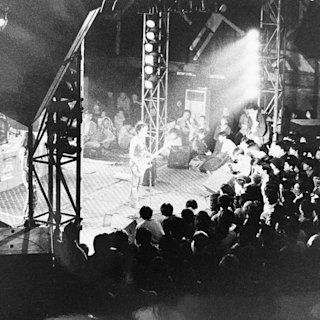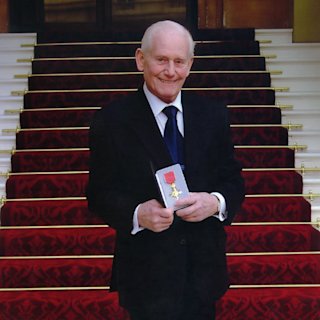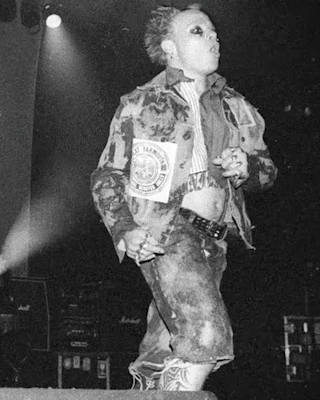
The Prodigy’s Keith Flint was an icon of the rave era.
In 1997 we celebrated Marshall’s 35th anniversary – and launched the renowned DSL amplifiers range plus a limited series of 250 white vinyl amps the same year. Elsewhere, the fruits of a cultural schism ripened as the mainstream status of contemporary electronic music was solidified. One of the main culprits was a vibrant “rave” scene that had taken the UK by storm.
Synthesizers and drum machines had transformed dance music in the ‘80s. Acid house, built on the squelching sounds of the Roland TB-303 bass sequencer, emerged in the clubs of Chicago that decade, laying down the groundwork for the techno revolution in a reunified ‘90s Berlin. Nowhere had electronic dance music been more a phenomenon, though, than in the UK. Here, colossal parties had been filling clubs in cities like Manchester and Sheffield – and fields and warehouses around the new M25 London orbital motorway, for years.
The iconic smiley logo became the scene’s flag. Its hedonistic values were marked by scenes of baggy-clothed revellers of all backgrounds sipping Lucozade, and sporting hi-vis jackets and neon accessories. The period of 1988-‘89 was referred to as the ‘Second Summer of Love’ – as DJs returned from club mecca Ibiza to throw delirious parties that harked back to the liberty and indulgence of the late ‘60s.
It's hedonistic values were marked by scenes of baggy-clothed revellers of all backgrounds sipping Lucozade, and sporting hi-vis jackers and neon accessories.
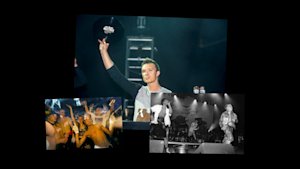
Ravers gather at parties in the UK in 1997. Liam Howlett DJing at Resolution. The Prodigy’s Liam Howlett performs using Marshall hardware at a New Year’s party, 2000.
The surrounding culture had become ingrained in folklore after unlicensed raves playing “repetitive beats” were outlawed in the Criminal Justice and Public Order Act of 1994. The move had accentuated a fury among the younger generation towards the Conservative government, who had already weakened trade unions and traditional industry in the UK the decade prior. But by 1997, change was in the air – as the Labour party was voted into power to end 18 years of Conservative rule.
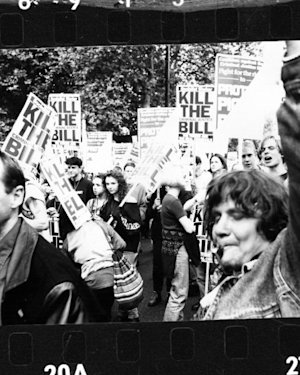
UK protesters march on Whitehall to oppose the Criminal Justice and Public Order Act in 1994.
All the while, exciting groups were fostering rave from the clubs to the mainstream, blending the sounds of techno and acid house with the performing mentality of a rock band. As Primal Scream and Underworld sat alongside Iggy Pop and Lou Reed on the triple-platinum selling soundtrack to the hit film ‘Trainspotting’, The Prodigy pinpointed a watershed moment of crossover in 1997.
The band’s hit singles ‘Firestarter’ and ‘Breathe’ fused overdriven guitars with club beats and a punk attitude – it was a sound that alarmed parents everywhere. That summer, they released their third album ‘The Fat of the Land’ on the same weekend that they headlined the prestigious Glastonbury Festival. It topped the UK Album Charts instantly, with the US Billboard 200 conquered just a few weeks later.
